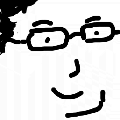Jaelyn reviewed The uncensored picture of Dorian Gray by Oscar Wilde
"I worshiped you with far more romance of feeling than a man should ever give to a friend. Somehow, I had never loved a woman."
5 stars
This version is based on the manuscript, rediscovered in 2017, from before the magazine editors started chopping out all the scandalous bits. The censored short version that was used against Wilde at his trial was then censored more when it was expanded into a full novel.
So now we get to see Wilde's original baby! Despite the censored version still causing a scandal and being used to convict Wilde, this is of course still tame by modern day standards (alas, where is my purity!) but far more explicit when it comes to things like Basil's romantic affection for Dorian. It's certainly fascinating to see what was triggering the poor little editor (being far more concerned about illicit hetero affairs than the gay stuff!) and also the stylistic changes. But either way, like much of Wilde's writing, it can't go a page or two without a little monologue of his …
This version is based on the manuscript, rediscovered in 2017, from before the magazine editors started chopping out all the scandalous bits. The censored short version that was used against Wilde at his trial was then censored more when it was expanded into a full novel.
So now we get to see Wilde's original baby! Despite the censored version still causing a scandal and being used to convict Wilde, this is of course still tame by modern day standards (alas, where is my purity!) but far more explicit when it comes to things like Basil's romantic affection for Dorian. It's certainly fascinating to see what was triggering the poor little editor (being far more concerned about illicit hetero affairs than the gay stuff!) and also the stylistic changes. But either way, like much of Wilde's writing, it can't go a page or two without a little monologue of his witticisms - something I always look forward to!



